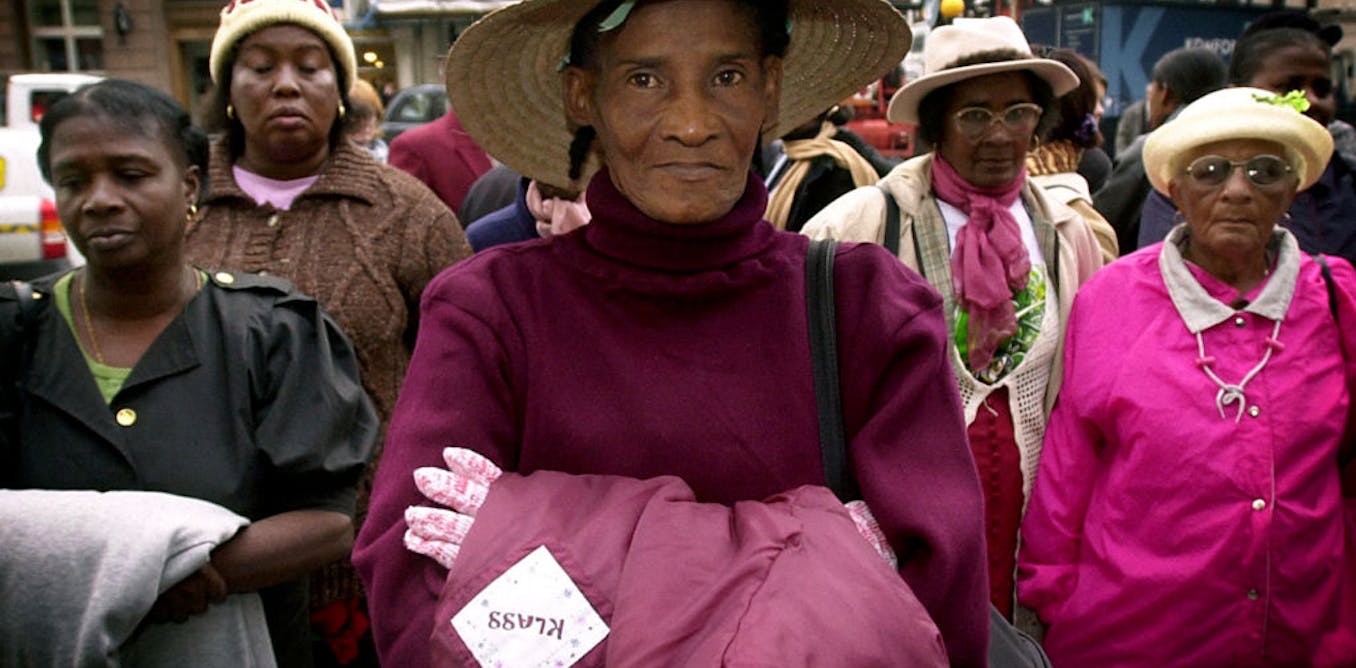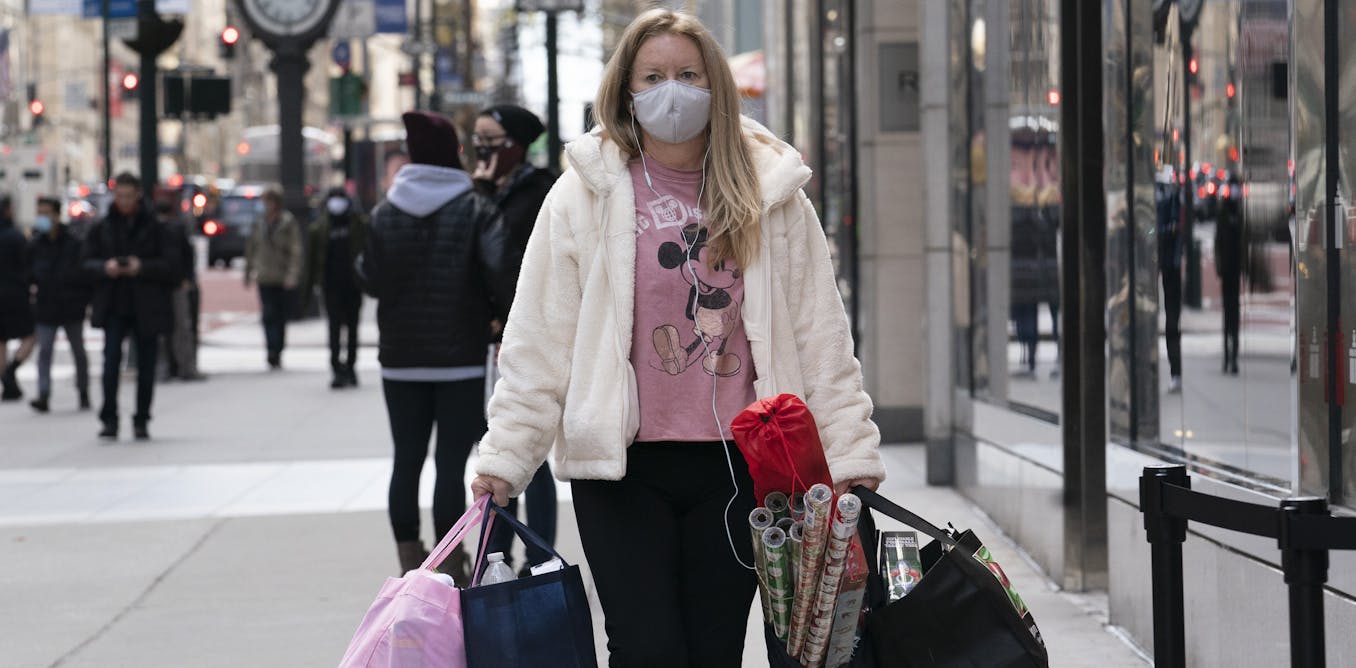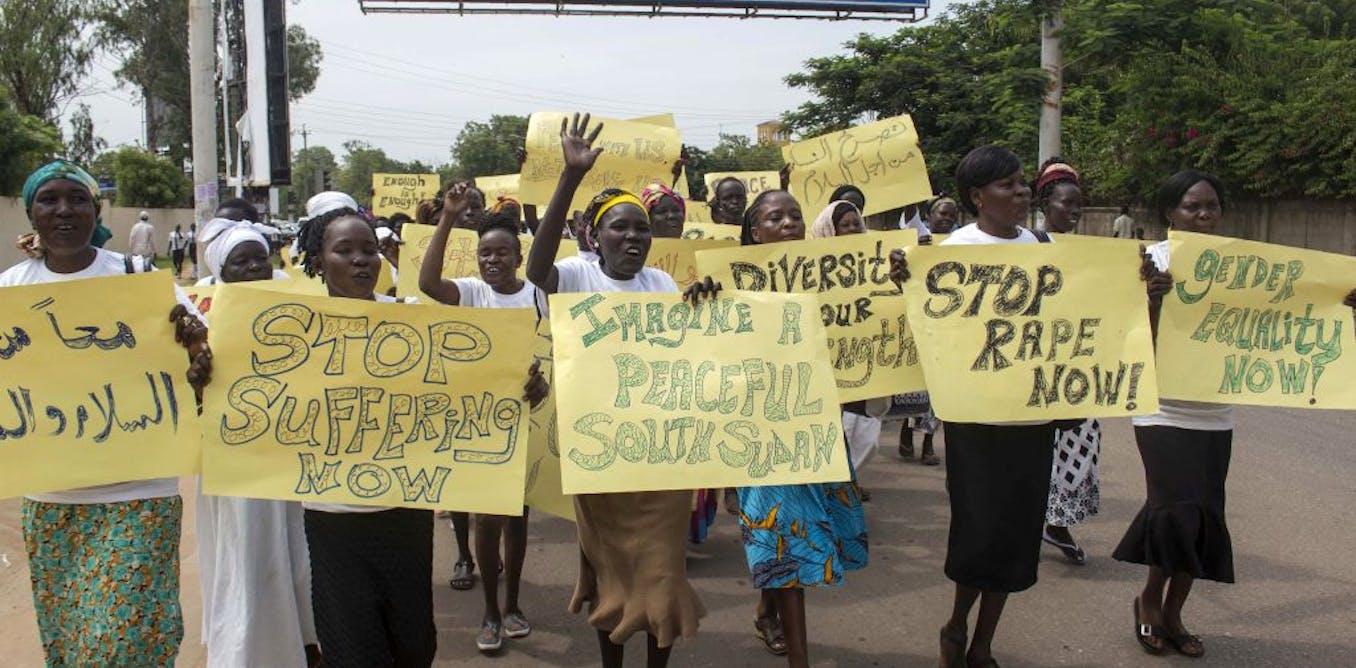Coronavirus weekly: treatments on the horizon and lessons for the next pandemic
The pandemic is still raging. Health, money, work, relationships, environment have changed throughout the world, and perhaps permanently so.
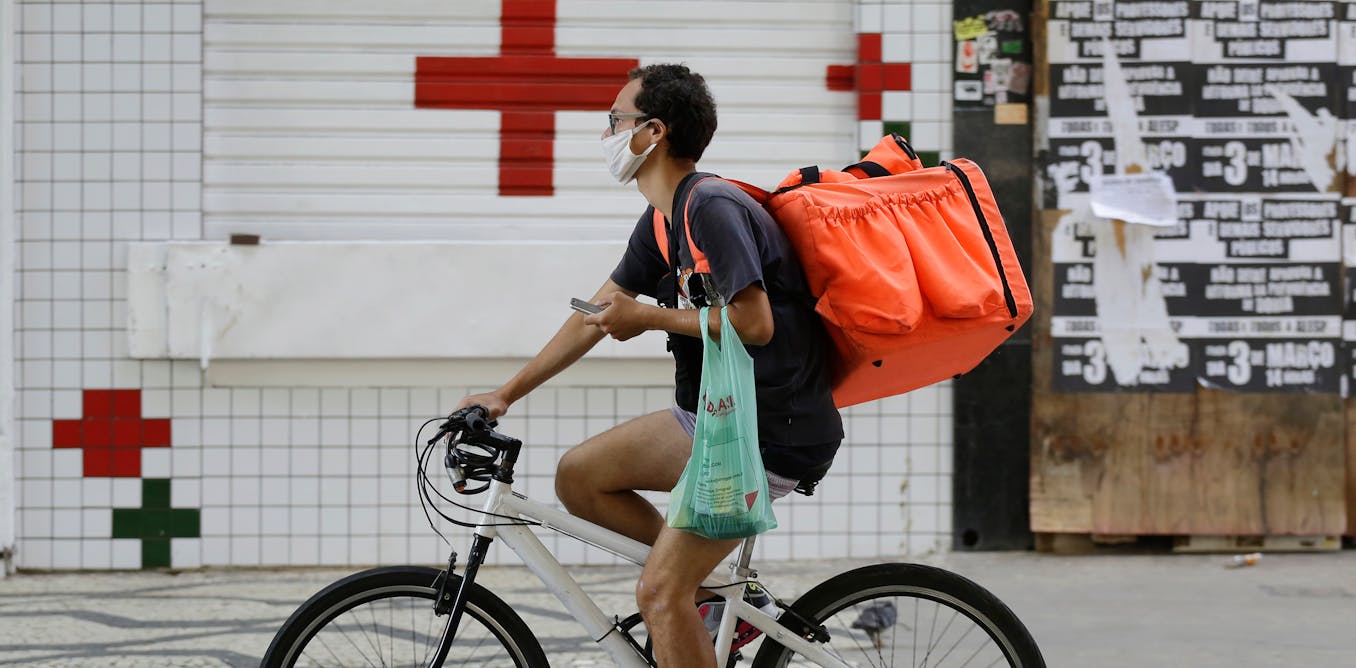
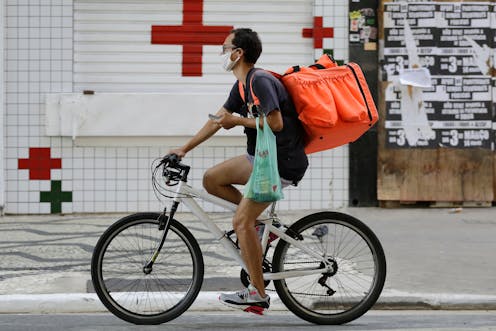
The COVID-19 pandemic is the largest and worst relay race in history. Without vaccines or reliable treatment on the horizon, when the curve goes down in one region it goes up in another. Prevention and isolation measures remain the most effective ways to control the curve. But the disease continues to affect not only human health, but all aspects of our lives.
The Conversation’s international network is working with researchers around the world to report on the latest science, the economy, and the impact of the pandemic in various parts of the world.

This is our weekly roundup of expert info about the coronavirus.
The Conversation, a not-for-profit group, works with a wide range of academics across its global network. Together we produce evidence-based analysis and insights. The articles are free to read – there is no paywall – and to republish. Keep up to date with the latest research by reading our free newsletter.
The latest science
Is the medicine already on the market? Professor Nial Wheate of the University of Sydney explains how a low-cost medicine on the market appears to be a possible option for treating COVID-19. Dexamethasone, a common anti-inflammatory, has been successfully used in the treatment of intubated patients. Apparently, this drug reduces pressure in the lungs and improves the respiratory process of seriously ill patients. However, these results are preliminary and we will have to wait for more complete and detailed information.
Why some scientists are paying close attention to the gut microbiome. At the University of Calgary, researchers Shirin Moossavi and Marie-Claire Arrieta are studying the correlation between the gut microbiome and the severity of COVID-19 infection. They found that the risk is higher in people with high blood pressure, diabetes and obesity, which are associated with alterations in the gut microbiome. This evidence opens the possibility of working on certain gut microbiome species that could improve these conditions.
Inhaling through your nose and exhaling through your mouth provides a powerful medical benefit. This is not a meditation course, it is the breathing technique recommended by the University of California, Los Angeles professor and winner of the 1998 Nobel Prize in Medicine Louis J. Ignarro. This technique takes advantage of the benefits of the nitric oxide (NO) produced in the nasal cavities. The presence of NO in the lungs could help fight coronavirus infections as it dilates the pulmonary arteries and airways, increasing the blood flow and oxygen levels in lungs and blood. Furthermore, when reacting with white blood cells, it generates antimicrobial agents that can destroy bacteria, parasites and viruses.
The latest gadgets
Protection, MacGyver style. The lack of protection materials and other supplies for the management of the COVID-19 has generated various DIY solutions. Stuart Marshall of Monash University explains why the medical material approval process is long and rigorous.
Infrared thermometers are not necessarily reliable. Professors Andrea Fuller and Duncan Mitchell from the University of the Witwatersrand explain the reasons why fever screening is not effective as a health control measure in public spaces. To detect fever you must measure the internal temperature of the body, but thermal cameras and infrared thermometers measure the temperature on a surface.
The latest on the economy
The rise of parasitic capitalism. Richard Shearmur, a professor at McGill University in Montreal explains how, unless employees are duly rewarded for their expenses, teleworking could become a variant of “parasitic capitalism”, whereby corporate profits increasingly rely on extracting value from the public — and now personal — realm, rather than on generating new value.
The disconnected stock market. “The stock market is not the economy,” wrote economist Peter Krugman. Gunther Capelle-Blancard from the University Paris 1 Panthéon-Sorbonne explains the disconnect between the stock markets and the real world (in French). At the beginning of the pandemic they remained buoyant, when COVID-19 reached Europe they panicked and now they have already recovered their euphoria as if infections, deaths and the confinement of half the world meant nothing to the economy.
The reshaping of commercial aviation. Professor Pere Suau from the Universitat Oberta de Catalunya studies the challenges commercial aviation faces (in Spanish). It is more than likely the crisis will alter the processes of commercial aviation: from the resizing of the supply and demand of travel to airport operations.
The shift in the tourism industry. Tourism faces the challenge of reinventing itself after the pandemic. For Professor Anna Leask of Edinburgh Napier University, an option for Scotland would be to encourage national tourism.

The latest in various countries and regions
US: rural areas more susceptible to COVID-19 than cities. David J. Peters of Iowa State University explains how, at the beginning of the pandemic, rural areas of the US seemed to be better protected from the coronavirus than large cities. This provided a false sense of security which has given way to a spectacular increase in the number of infected people in the least populated areas of the country. The reasons for this phenomenon? An ageing population or the presence of facilities such as military bases, prisons and meat industries as well as the fact that in these small communities the lack of social and welfare services aggravates the situation of vulnerability.
New Zealand: no longer Coronavirus-free. Despite the good management by New Zealand authorities, after 23 days without positives, two cases were confirmed: two women from the UK who, for compassionate reasons, were allowed to skip quarantine (to visit their dying father). This situation has once again put the country on alert and has forced the suspension of any quarantine exemptions. With this it has become clear that, despite the end of community transmission, control on risk factors must be maintained.
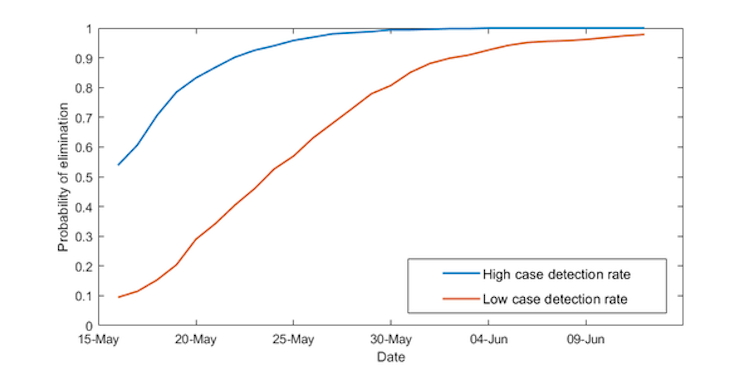
England: a group of people were well prepared to do contact tracing when the pandemic broke. Professor Jackie Cassell of Brighton and Sussex Medical School explains how NHS workers who carry out contact tracing in cases of sexually transmitted infections could have helped. In the world of sexually transmitted infections, contact tracing is known as partner notification. The UK’s network of sexual health clinics is unique as a locally embedded public health infrastructure with experience in contact tracing operations.
Spain: entire society is being reshaped. Rafael Puyol, president of the International University of La Rioja, analyses the demographic consequences (in Spanish) of the pandemic in Spain. In 2019, the number of deaths surpassed the number of births by 57,000. In 2020 the difference will be higher due to the deaths caused by the pandemic, and in 2021 due to the decrease in the birth rate. Furthermore, the closing of borders now, and then the economic downturn, will negatively influence the arrival of immigrant workers.
South Africa: what to do when confinement and contact tracing don’t work as planned. The country has been unable to maintain confinement long enough to contain the virus, nor to implement testing and contact tracing systems to contain the spread. A group of researchers from the University of the Witwatersrand explain the importance of redirecting efforts towards the management of public spaces, where there is a high risk of contagion. For this, it is essential the authorities provide the population with clear and precise information.
Sudan: its transitional government must be supported. As long as there is no vaccine, prevention and care are essential, but particularly difficult in those countries whose institutional weaknesses hinder their governance. Sarah Logan at The International Growth Centre explains how political instability and a limited financial capacity makes Sudan such a fragile state, which should be supported.
Latin America and the Caribbean: greatest economic crisis since the Great Depression. The decrease in exports, the fall in the price of raw materials, the collapse of tourism and the drop in the flow of remittances will provoke a great economic crisis (in Spanish). After the pandemic, inequality and poverty will be more pressing. These are the results of the analysis of Professor René Hernández, from the University of Alcalá.
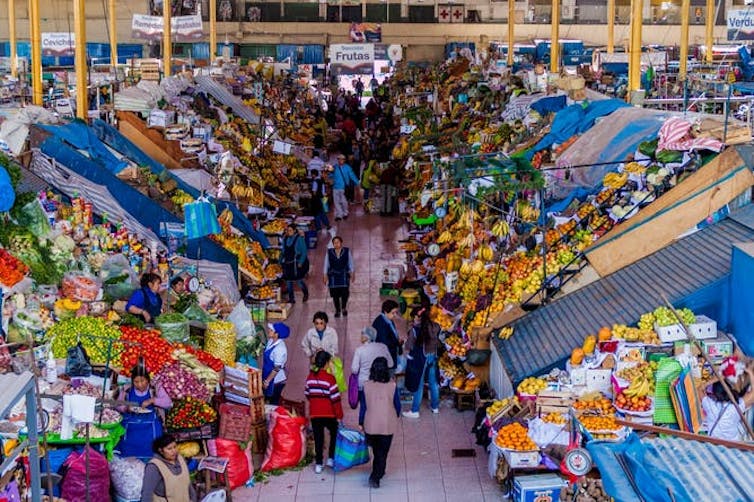
And before you go
- Science and faith could walk hand-in-hand. Professors Hakimul Ikhwan and Vissia Ita Yulianto from Gadjah Mada University explain how religious leaders can be of great help to health authorities in convincing many believers of the importance of COVID-19 pandemic prevention.
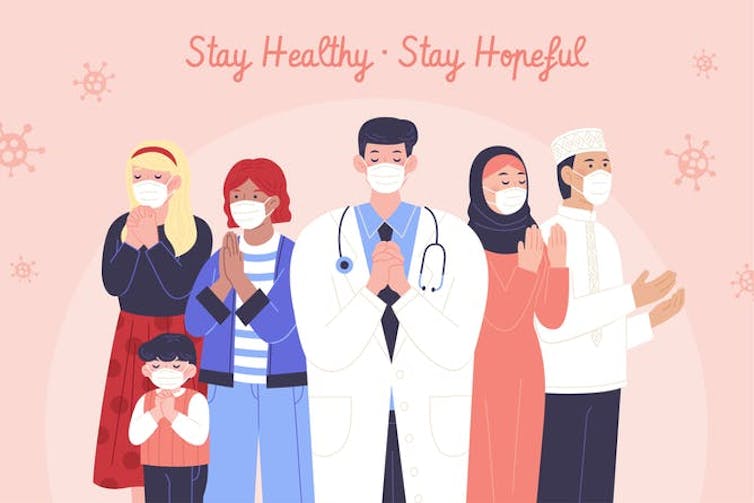
Get the latest news and advice on COVID-19, direct from the experts in your inbox. Join hundreds of thousands who trust experts by subscribing to our newsletter.![]()
What's Your Reaction?



















































































